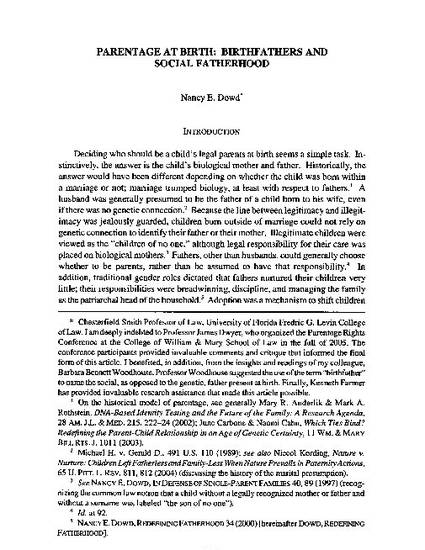
Deciding who should be a child's legal parents at birth seems a simple task. Instinctively, the answer is the child's biological mother and father. Historically, the answer would have been different depending on whether the child was born within a marriage or not; marriage trumped biology, at least with respect to fathers. A husband was generally presumed to be the father of a child born to his wife, even if there was no genetic connection. A number of changes have moved parentage away from the marital/genetic/patriarchal model that valued the marital family above genes or social fatherhood. Modern principles of parentage center on children's well-being and social benefit. The question raised by our changed context is how we should define parentage consistent with those principles. This article focuses on parentage by looking exclusively at fathers.
